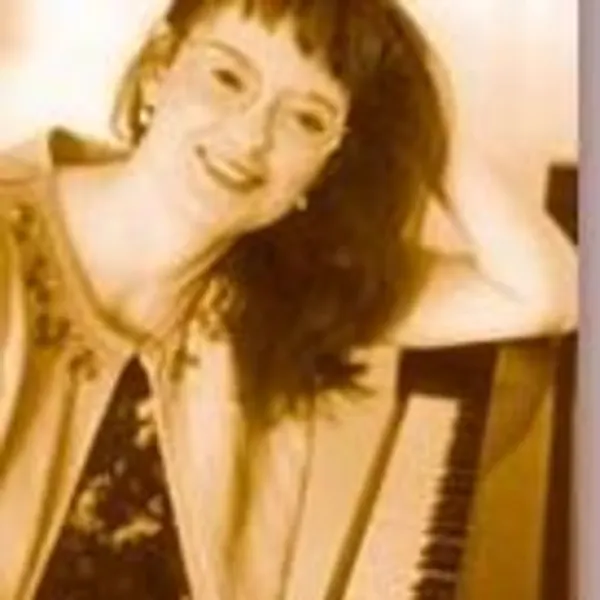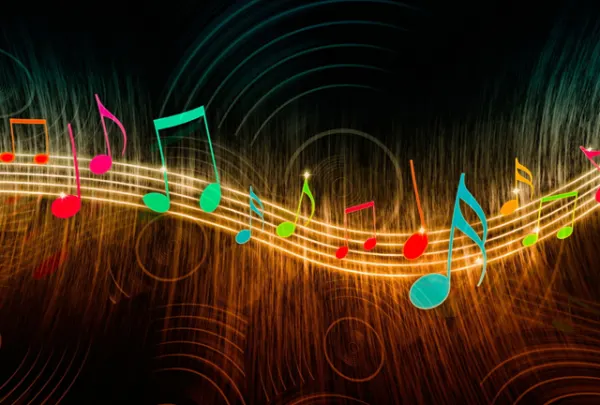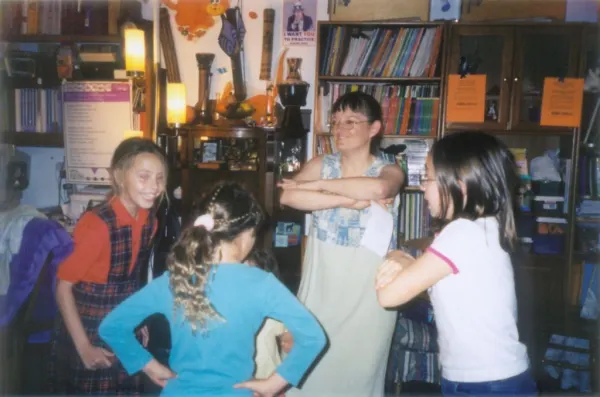Beginnings In Music - Piano Theory, Technique & Practical Application For Ages 5-105
About
Give the Gift of Music! "Music brings joy to the heart, peace to the soul & life to everything." "We teach children music, not so they can make beautiful music, but because music makes beautiful children." Two of my favorite quotes. I've taught for many years and I love what I do. Watching a student learn and grow is more rewarding than anything else.
Furthermore, Music is beneficial! No one thing is better than music for child's development and or for stimulating your own brain. Studies show that it can even help stave off dementia and other results of aging. Why? Music is the only activity that we do that uses All areas of the brain at once. Music increases IQ (in children), improves intuitive math and reading skills, raises test scores and the ability to focus and more. Furthermore, Students who study music are also more likely to graduate, go to College and to be accepted at demanding schools like law and medicine. Music is a great way to maintain your mental skills and flexibility, explore different times, cultures and styles.
You will receive friendly, private (except for the Small Group 5 day Summer Camps) lessons from a knowledgable, experienced professional. In class, I make a point of covering all areas of music: playing, technic, theory, ear training, music from many places and times. You will become a well rounded musician. Every once in a while, a student moves to another teacher, they usually come back saying they were not learning much. I see to it that my students KNOW what they are doing, so that even if a student has to stop for some reason, they should be able to pick up new music at or harder than the level they were playing at. After all, that's what one goes to a teacher for.
WHAT IS A TYPICAL LESSON LIKE?
- Arrive and get your things out
- Warm-ups: trills, scales, 5 finger patterns, thirds, octaves, etc.
- Did you have trouble on your assignments this week? If so, we'll go directly to that.
- Demonstration of all pieces while working on any problems
- Assignment and demonstration, practice and special directions for each piece.
- Theory check and new assignment. Complete as needed.
- As time permits, review of flashcards, ear training and so forth.
- Music Lab (either before or after the lesson as fits in with the students around you) - 15-20 minutes of independent study: musical computer games to support what we are working on, read books about music, composers, music history and so forth, listen to music as supports what we are working on, complete any missed theory assignments, review of flashcards if needed.
- Farewell
WHO AM I?
I love Music! My family has always incorporated music into our lives. Some of my earliest memories are being danced around in my Mom’s arms and listening to her sing. I began formal lessons on the Piano when I was 7 years old and have had over 18 years of private lessons and have played professionally. Growing up also I sang in the Church Choirs, played on Hand Bells, and explored the Flute. I spent a formal year each on Trumpet, Drums and Harpsichord and am currently working on learning Zither, Auto-harp, Dulcimer, and Soprano & Alto Recorders, and sometimes the guitar (when I have a chance). Of course, I also regularly read and attend lectures, conferences, seminars and master classes to always improve my teaching skills. I have been teaching piano and music theory for over 31 years in this area and have played professionally. I am a member in good standing with the Music Teachers National Association (MTNA), and was with the California Association of Music Teachers (CAPMT), Empire Music Teachers Association (EMTA), the Music Educators National Conference (MENC), the Suzuki Association of North America, the National & the Inland Empire Kodaly-Orff Association, and the National Conference on Keyboard Pedagogy, the Arizona State Music Teachers Association and the Phoenix Music Teachers Association. I am a fully certified and licensed teacher of Kindermusik and Musikgarten and have earned National Certification (NCTM) through the MTNA and have earned Level I & II (out of 3) in Orff-Scheulwerk. I was District IV Coordinator for CAPMT, and Vice President then President of the EMTA. I also have extensive experience with a wide variety of disabilities. I keep busy and love teaching! WHAT DO WE DO HERE? I try hard to present students with a solid, broad based approach with an emphasis on understanding the fundamentals of musical comprehension, music reading, musical memory, and ear development. These are essential to playing and enjoyment of any instrument! To this end we cover theory, music history, performance, technique and practical application. These basics are supplemented and reinforced by the monthly group sessions, several annual field trips, access to regional, state and national music competitions and performances, as well as the formal Student Evaluations each Spring. I have a full music lab, an extensive library of music and music reference materials and up to date postings on local free or low cost musical events While I tend to emphasize classical music and technique, we will also cover a wide range of music in various meters and modalities: classical, popular and world music in solos and duets. Supplementary books are available: holiday, religious, popular, classical, music from specific times, places, composers, movies... or whatever the student wishes, when they are ready. My personal goal is not to have a studio full of competition performers. A few are always nice of course, but the average student just wants to be able to make music - to make it sing. I DO want them to understand, appreciate, and be able to pick up something and figure it out - or apply what they know to another instrument. Once music is part of a life, it never leaves; it is the one universal language.
What to Expect and what is expected:
* At Lessons, we: Warm-up first, review and update music in progress, check theory, ear training or flashcards(sometimes), go over new things, and do the music lab (an extra 15 – 25 minutes before or after the lesson)!
* At home you should always: Warm-up (all scales, trills, exercises, technical things, Hanon, chords, etc.), Read through any new music looking for patterns and instructions, Practice each piece as needed, Complete Theory, or work on Ear training, Flashcards &/or Memorization and Review old music.
* Use the Assignment Books. They list all things to be done. Please read it each week. Complete and sign off the practice record each week. A Practice Calendar page is available for more detailed practice. Copy as needed. I will mark items in the Assignment book with a star for “making expected progress”, a triangle for “well sort of”, and a check for “not on track or missing”.
* Why Theory & Flashcards? While is not the music itself, this is what a student needs to read and understand music fluently. It is a key to musical success. Students will have it every week. The Flash Cards are to support the student’s theory learning and should be studied at least twice a week until a given card has 3 stars.
Understand that the theory or reading is meant to prepare for the music you want to play. If you do not do your theory - YOU WILL NOT DO AS WELL OR GET THERE AS FAST AS YOU COULD.
* Why Memorize? Memorization is an important part of musicianship, which adds considerably to self-confidence. The discipline & experience of memorizing is valuable not only in music, but is essential for public speaking, academics, poetry reading, drama or vocal music. This ability is an aptitude. It comes very easily to some & is a struggle for others. An important benefit of memorizing is to be able to play more fluently & musically, without concern for reading the notes. Ideally, memorizing should be part of review work that is done all the time.
* Plan to attend: Group Sessions, staying for Music Lab, Field Trips and other activities. Students who do will do better!
* Be sure to bring ALL Music, Flash Cards and Completed Theory to class each and every week.
General PRACTICE ADVICE for STUDENTS
SET UP:
* Successful and rewarding music study depends on consistent daily practice. So, SCHEDULE a regular practice time. Before school, before bed, at 4:00 or whatever works. Remember that unscheduled practice rarely happens and you will not get very far! 30 minutes is only a minimum and is necessary if you expect to progress at a normal rate. Increase this time by 5 to 10 minutes per year. More practice will mean you will advance faster. How fast do you want to go?
* NO INTERRUPTIONS - like phone calls, texts, friends or chores in the middle of practice time. And, turn off distracting noisemakers like TV=s, radios and games.
PRACTICE
* WARMUPS First, Every Day!
* Good Posture: If you look like a pretzel, you will probably play like one too. Sit up tall, facing the piano, legs in front. Keep fingers curved (nail tips on the keys), (girls need short nails) wrists should be flat (no keyboard wraparounds or tents). Not using good posture can create anything from discomfort to permanent damage. If needed use books, stools or boosters to be comfortable.
* Practice of a new, specific piece should include:
- Study your music looking for all the details and patterns.
- Clap or tap all parts of the piece first, as needed to help yourself.
- GO SLOWLY & COUNT EVENLY! Using a Metronome can be very helpful.
- At the beginning of every song, speed does Not help. The right speed it the one that you can play correctly at.
- Play the melody until you know it!
- Play everything Hands Alone.
- Play the hard bits first 3 times each Hands Together, correctly in a row
- Then play the whole piece slowly the 1st time each day.
- As time allows you might do the whole piece 3 to 5 times.
- The final time, be sure to play straight through, without stopping for mistakes.
- Afterwards, go back and work them out.
* Large pieces: break it up into smaller pieces: If the piece is hard or complicated, play it hands alone, count out loud. Do it measure by measure, phrase by phrase, and section by section.
* Find what works for you: You may do better to play each piece 5 times a day. Or, you may need to do each piece or a part of each piece 3 times or more, correctly, in a row. You may practice more effectively in 2 twenty-minute practices... Each and every student is different. , as well as other music by the same composer.
Realize & Remember
* There will be plateaus where it may feel like no progress is being made. This is always true for any developing skill.
* In practicing, You have a choice: play something the wrong way fast, spend lots of time unlearning, and relearn it the right way, knowing all the time that under stress, like a recital, mistakes come back to get you, OR do it right slowly & carefully and build to the speed you want. 4 times as much work or not? Hmmmm....
* You Will Make Mistakes: After all, Practice is doing what you can’t do.
* The general rule of thumb for any instrument is 7 years to mastery.
* The more advanced you get, the longer it will take to work up music. After all you are doing much more!
Practice is working on what you Cannot do!
Above all - PRACTICE!!! All “talent” is 99% sweat.
“Life is like a piano - what you put into it is what you will get out of it.”
I love watching the students grow and develop and learn to love music. Working with students is just the best. When I had to take a break to care for my dying parents, I missed it so much, that after a few months, I offered lessons for free to the neighbors.
VISIT: www.BeginningPianoStudios.com for more information.
Highlights
Specialties
Years experience
Able to read music
Lesson length
Student's age
Student has instrument
Interested musical styles
Photos and videos



Reviews
Steve S.
Frequently asked questions
What is your typical process for working with a new student?
First, we check to see where they are. Then we start the learning or review, making sure that each step is secure before taking another. With a true beginniner we start by exploring the piano, a warmup, and even play a few, very simple songs on the first day. With more advanced students, we use some of what they are working on and work to fill in any gaps.
What education and/or training do you have that relates to your work?
I've played professionally, have an degree in music, trained in all levels of Kindermusik and Orff-Scheulwerk and have attended more workshops, lectures, confrences, masterclasses and seminars than I can remember. I never really stop learning.
Do you have a standard pricing system for your lessons? If so, please share the details here.
Yes. $40 per hour. $36 per 45 minutes. $15 per trip (if I travel). Materials are paid directly to me and at cost. What ever the store charges me is what I charge you. It's just easier for everyone that way.
FEE SCHEDULE (As of January 2019)
* Flat Monthly Fees of: 45 minute lessons = $140.00 or 1 hour lessons = $160.00
* Additional Children receive a 25% Discount for their own lesson
* A 60-minute lesson may include the Recorder after moving into the JTM II book, if desired.
* Termination Deposit is ½ months Tuition.
* Payment is expected on or by the final lesson of each month.
* Music Supplies are provided at cost.
* Piano Explorer subscription is $8.00 annually (optional & for grades 4 & up)
* Late payment fee is $20.00. Deadline is the last day of the previous month.
* Bounced check fee is $25.00 for banks bounce (or what the bank charges me).
* Students who are listed in a Recital Program who fail to show will be charged $10.00. This takes 4 days notice!
* Other outside Recitals, Competitions & CAPMT Student Evaluations are at cost, usually $5 to $30.00.
Included with lessons at No Charge:
* 15 to 25 minute In Studio Weekly Music Lab
* Guarantee that the student will receive a minimum of 4 lessons per month, unless you miss class
* Occasionally, 5 lessons in one month if you pay in advance.
* Monthly 1.5 Hour Group Sessions on Saturday afternoon
* Bi-Annual Formal Studio Recitals
* Mini-Recitals
* Access to Field Trips, Performance Opportunities, Competition Opportunities and other things provided by the local, state & national music teacher assos.s
Teaching Objectives:
- First, to provide quality piano instruction to almost any age.
- Second, to make the students as knowledgeable and self-sufficient as possible.
- Third, to reach the first two objectives effectively and still have fun doing it.
How did you get started teaching?
A neighbor asked me one summer to teach her daughter while I was in high school. It just grew from there, until I graduated from college with a full studio, a job I loved and no commute.
What types of students have you worked with?
All ages, most styles of learning, students local and from around the world (probably at least 85% of the countries in the world!), students with a wide variety of backgrounds and personalities. I've also worked with students with many different types of disabilities. Love them all.
What advice would you give a student looking to hire a teacher in your area of expertise?
Look for experience, a dedication to continuing self education in 1 form or another, a willingness to be flexible, a teacher who will give you a solid foundation to build on.
What questions should students think through before talking to teachers about their needs?
Am I willing to commit to at least 30 minutes a day practice. Do I have an instrument of reasonable quality? If so, has it been tuned within the last 6 months. It's like riding a bicycle if it squeaks, rattles and the chain comes off, it's not much fun.